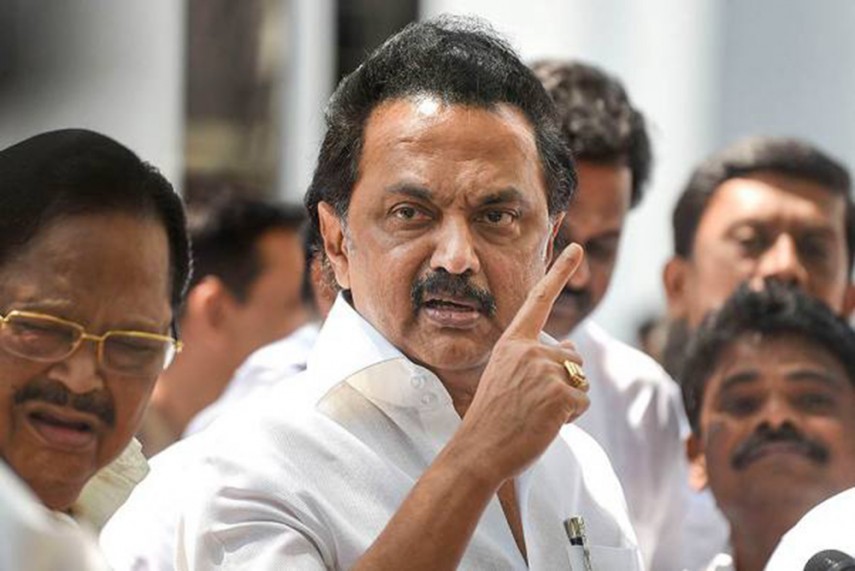
3 reforms Stalin wants Modi, CJI to introduce to India's judicial system

Making Tamil the official language of the Madras High Court, introducing heterogeneity in the appointment of judges to high courts and the Supreme Court and setting up permanent regional benches of the Supreme Court are three major demands that Tamil Nadu Chief Minister MK Stalin has made before the central government.
Make Tamil official court language
In a letter sent to Prime Minister Narendra Modi and Chief Justice of India NV Ramana on Thursday, Stalin demanded appropriate steps to declare Tamil as the official language of the Madras High Court and its Bench in Madurai, in addition to English.
In his letter, the DMK supremo, cited the instances of the high courts in Rajasthan, Madhya Pradesh, Bihar and Uttar Pradesh, where Hindi is being used as the official language besides English,
He wondered what was stopping the Centre from making the official language of a state the official language of regional high court.
“Moreover as a language that is both Classical and a vibrant modern language it would be perfectly suitable to use Tamil in the high court. Further, making law and justice comprehensible to the common man in the court proceedings is essential in the justice delivery system,” he added.
At a recent event, Prime Minister Modi had stressed the need to use the local language in court rooms to help people understand the judicial process and hence develop faith in it.
‘SC, HC should reflect India’s diverse, pluralistic society’
The Tamil Nadu chief minister also called for diversity in the representation of judges in the top court. He said, as per the hierarchy of courts, with the Supreme Court of India as the apex court, “the unitary makeup of the judicial branch is only to ensure judicial discipline so that the judgements of the Supreme Court are followed by all courts and authorities in India.”
Stressing that the judiciary should reflect the “spirit of co-operative federalism enshrined in our Constitution,” Stalin said, it thereby becomes “important that the composition of Supreme Court and the high courts reflects the diverse and pluralistic society of India.”
But instead of that, he rued, the past few years have seen a decline in representation from all sections of the society in the higher judiciary, leading to a “diversity deficit”.
“Judicial diversity is fundamental to the quality of judging and a broad based, heterogeneous group of judges representing various sections of the society, alone can reflect the views and values of society as a whole, particularly on issues involving historical, traditional, linguistic and cultural matters. This is because they would provide wider perspectives, since the group of judges would naturally interpret and enforce law based on their multi various backgrounds,” Stalin reasoned.
“I am of the firm view that all states must find proportional representation on the Bench of the Supreme Court. It will then truly reflect the diverse nature of Indian society in its various dimensions,” he said.
Regional Supreme Court benches
In his letter, Stalin also insisted upon establishing permanent regional benches of the Supreme Court in New Delhi, Chennai, Kolkata and Mumbai to ensure people in other parts of this “vast country have equal access” to the apex court.
While there are 25 high courts across the nation, it is seen from data that the number of appeals being filed in the Supreme Court is more from states around the NCR region than states located further away from Delhi.
The chief minister cited Article 32 of the Constitution to assert that all citizens, irrespective of their background should have direct access to the Supreme Court, but rued that the “privilege has been eroded over economic constraints.”
Stalin’s letter is a repeat of the demands he had made during his speech at a Madras High Court event on April 23.
“I remain in the fond hope that these three demands of the people of Tamil Nadu will be considered and implemented by your good selves in the nearest future,” he said in the letter.
(With inputs from agencies)


